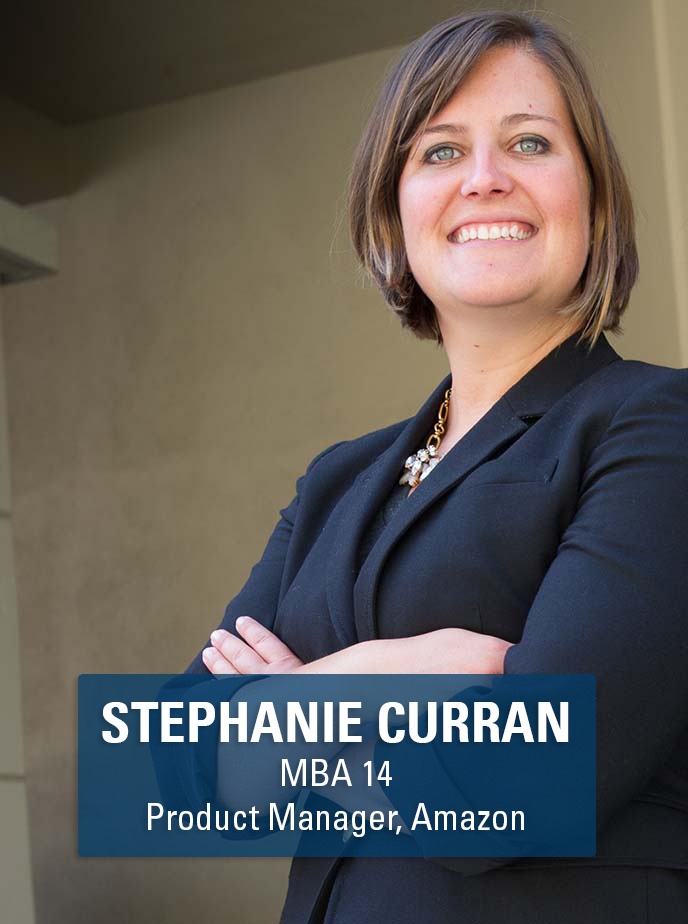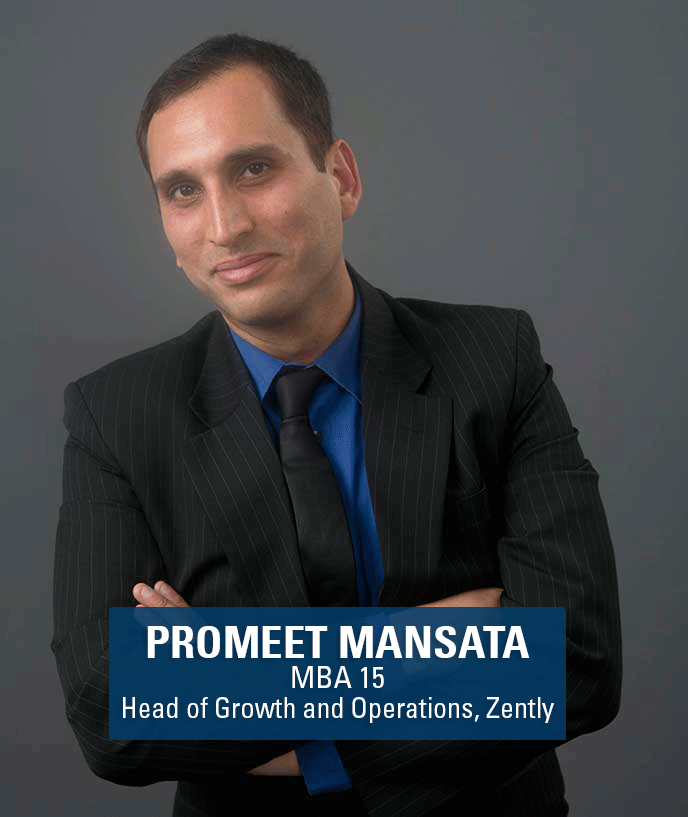Product managers draw upon a wide array of skills to help companies envision, deliver, and market the new and the next. Some of the abilities a product manager (PM) needs stem from innate qualities such as extroversion. Others, such as negotiation and analytical skills, can be developed through education and practice. One educational path to breaking into product management is an MBA program, which develops the well rounded business knowledge PMs need.
While most business schools do not offer an MBA in product management, they do offer learning opportunities, that when structured correctly, can provide the curriculum, activities, internship experience, and network needed to prepare for a career in the field. Here, Berkeley Haas MBA alums share their perspective:
How does an MBA help for product management?
PMs have to be familiar with a wide swath of business areas and be able to communicate effectively within a team environment. Successful product managers also have to fill the role of problem-solver, storyteller, trend analyst, and entrepreneur to create a viable product and predict how it will grow over time. Taking MBA classes can help you build the many diverse skills needed.
For example, Max Wesman, VP of product for GoodHire and a Full-Time Berkeley MBA alum, prepared for his PM career by taking classes that could help him build cooperation and trust, tell the story of a product to internal and external audiences, negotiate product trade-offs, analyze trends, and achieve strategy-supporting outcomes.
“While in school, I focused on taking classes and building up experiences that I thought would help me look better to companies hiring PMs and assist me down the line in the actual job," says Max. The MBA classes he took for product management included organizational behavior, customer and market development, statistics, financial modeling, negotiations, leadership communications, market research, strategy, and entrepreneurship. "All helped me strengthen my core PM skills,” says Max.
Gaining these skills not only helped Max launch his career, but also allowed him to be more effective in his role as a product manager and then as the leader of a product team—and now also as an industry advisor to Berkeley MBA students.
“In my career as a PM, I’ve definitely had to reach back into my own business school experiences bag for everything including dealing with troublesome personalities on development teams, pricing new products, evaluating A-B tests for statistical significance, presenting a product vision, and building financial models for forecasting, ” says Max.
Preparing with tailored class projects and internships—or by applying your learning at work
Tim Gray, a Berkeley MBA alum who has served as an industry specialist for the Berkeley MBA Career Management Group and as a product manager for Autodesk, BandPage, and Ask.com, suggests that you not only take classes designed to hone PM skills, but also actively shape your MBA education with tailored class projects.
“Being really committed to a product—or even better—to a specific customer problem or opportunity, and demonstrating this, is one of the most important things you can do as a student interested in product management. It shows that you have already done some work that is relevant for the job,” says Tim.
Jay Dave, who wanted to transition from an engineering and tech background into a product leadership position, used this approach while earning his degree in the Berkeley MBA for Executives Program. While working as a senior product manager for Amazon, he took what he was learning in class and applied it to a real-world project that launched one of the largest subscription initiatives within Amazon Pet Supplies.
“Haas has given me frameworks I can apply to any business problem. I can now ask the right questions to gain insights from my customers,” says Jay, now managing a product team for Amazon's home furnishings. "I'm able to help to create a strategy that shapes the experience of shopping on Amazon.”

Even broader projects can be helpful. Kavya Mallesh, senior staff product manager at SlingMedia and a graduate of the Evening & Weekend Berkeley Haas MBA Program, found that working as part of diverse teams throughout her studies grew her skills. "Class projects at Berkeley Haas offered me opportunities to work with team members of different skills and perspectives," she says. "These experiences prepped me to work better with geo-diverse and cross-functional teams."
Tim also recommends gaining experience through MBA internships to increase your odds of landing a full-time job in the field after graduation. This approach worked well for Max.
Read more posts about product management and product managers
“Ultimately, I used on-campus recruiting to help secure a summer internship as a PM and eventually a full-time role. My MBA very much contributed to me getting my first job as a product manager,” says Max.
Who does (or doesn't) need an MBA for product management?

The need for an MBA can depend on your background and skill set. If you're like Stephanie Curran, who worked previously as a senior equity analyst at Bloomberg LP, you may need an MBA to make the transition. Stephanie, a full-time MBA program alum, is now senior product manager at Amazon Marketplace,
“For someone like me who was doing a career and industry pivot with no technical background, it was absolutely necessary,” says Stephanie. “Earning my MBA not only allowed me to begin flexing the skills I needed, but it also allowed me to gain experiences working in product-management-like roles in other companies and then through an Amazon internship—which gave me something to talk about during the interviews. It definitely helped me get a foot in the door.”
Although an MBA for product management might not be considered a necessity for everyone, it can certainly be seen as an asset for individuals hoping to gain a competitive advantage. This was the view of Swetha Tupelly, an Evening & Weekend Berkeley Haas MBA alum and product manager at ServiceMax, an SaaS division of GE Digital.
“Many people said I didn’t need an MBA, but in the end I decided it would be very helpful,” says Swetha, who worked previously as a technical lead and engineer at Qualcomm. "It would be a way of differentiating myself, opening some doors, and competing with those who had more PM experience.”

Promeet Mansata, former product manager with @Walmart Labs and also an alum of the evening and weekend program, agrees that while an MBA may not be entirely necessary, the credential can sharply increase your chances of not only landing a PM job, but also of doing the job well. Promeet is now Head of Operations and Growth for Zently.
“Breaking in is hard, and quite honestly the degree isn’t a silver bullet that will get you a job in product. However this does not mean that the MBA wasn’t important for landing the job," says Promeet. "The MBA gave me a large toolkit of skills, the ability to look at things with a different set of lenses and identify problems, connections into so many companies, and a wonderful network of classmates that helped at every stage.”
Want more insights from our career coaches and Berkeley MBA alumni in product management? Download our free ebook on breaking into product management.











